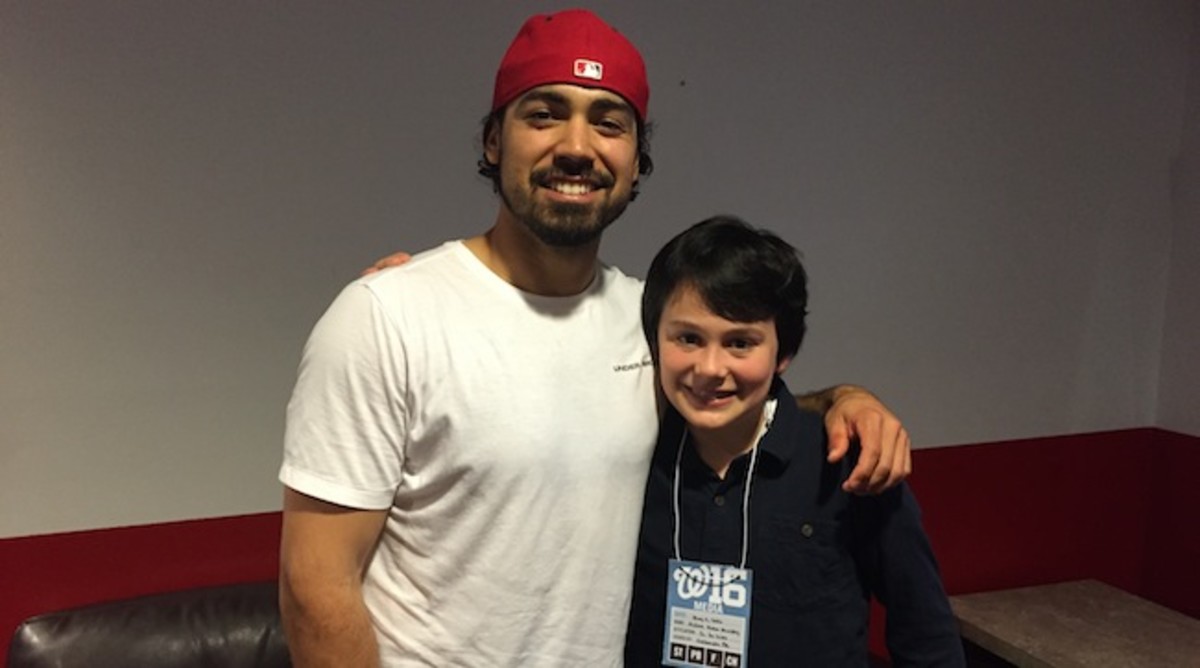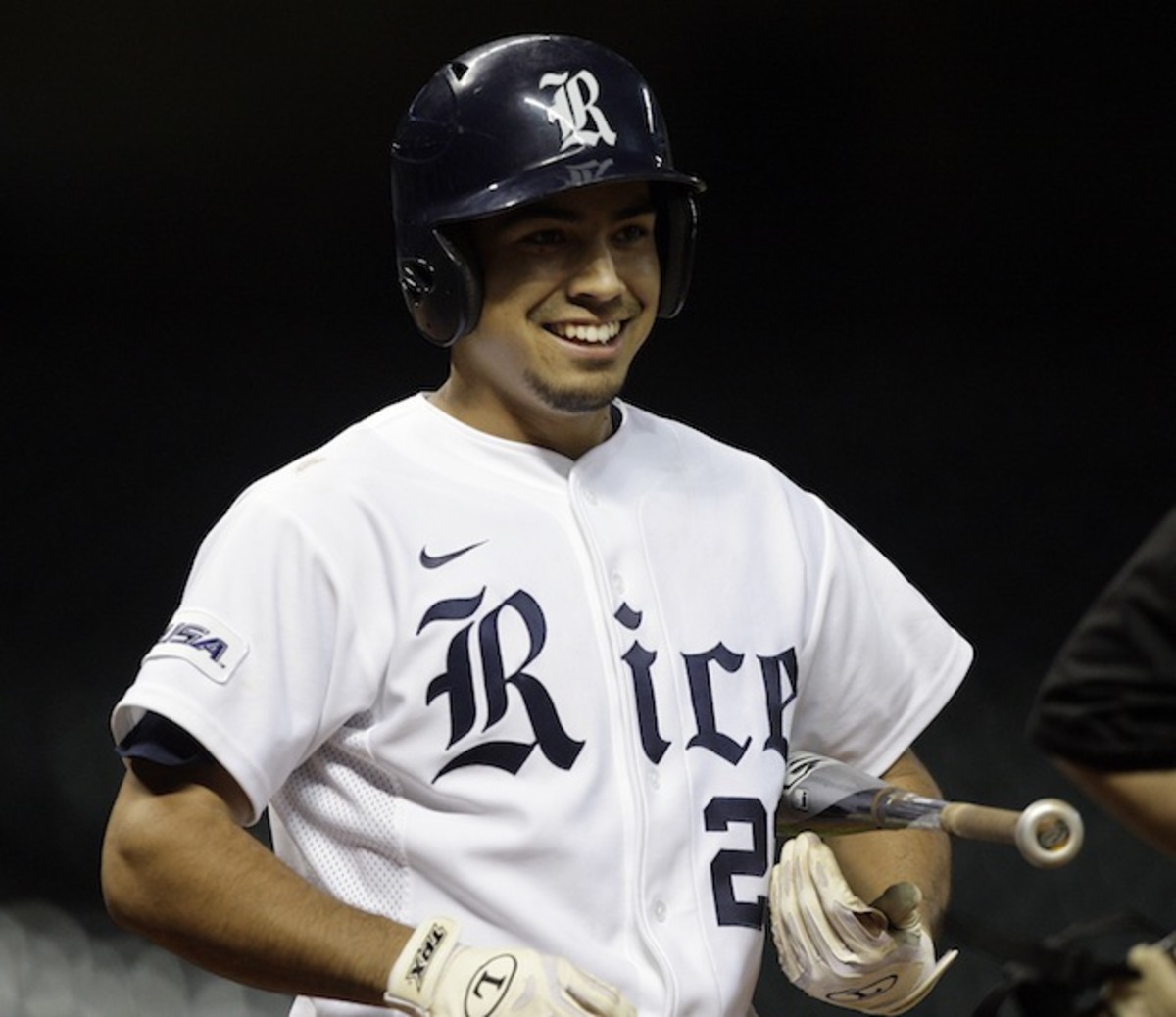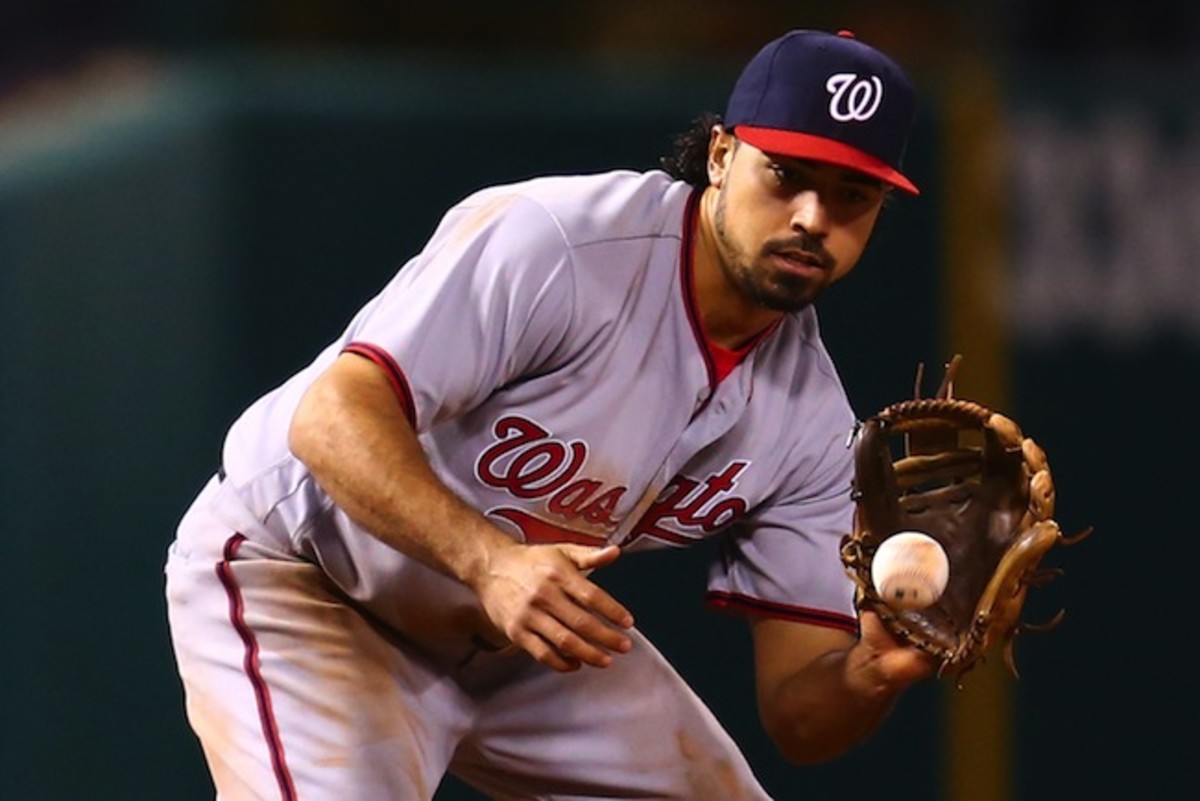Catching Up With Nationals Infielder Anthony Rendon


Washington Nationals infielder Anthony Rendon has accomplished a lot since making his major league debut in 2013. The 25-year-old has more than 400 hits, 150 RBIs, and 150 walks. He earned a Silver Slugger in 2013 as the National League’s top offensive third baseman, and he has a .273 career batting average. Rendon is also active in the community. Several times a week, he visits Nats Academy, an organization where students go after school to learn about baseball, nutrition, and life. Rendon is actually on the board of Nats Academy.
In May, before the Nationals played the Tigers, I sat down with Rendon and asked him about his road to the majors and about what it's like to be a major leaguer.
What is your earliest memory of baseball?
I would have to say Little League. I was about four or five years old, and I was playing with a team, the Dodgers, and we had a little tryout so that the coach could figure out which kid was best at playing each position. The coach put us all in centerfield, and he goes, “Alright, just field a ground ball and throw it home.” I mean, not many kids are going to reach past second base. I tried to throw it as hard as I could, and I reached all the way to the backstop! So I don’t know why I ended up at shortstop, not centerfield!
Who were your biggest role models as a kid?
In life, my parents, [for] the way they raised my brother and I, taught us the values of life. They are my biggest life role models — even to this day. Neither one of my parents played baseball or softball, so my biggest role model in baseball was probably Willie Ansley. He was and still is my hitting coach. He started with me around nine or 10 years old, and he has been my biggest help in this game.
How about your brother? Is he younger or older than you?
He’s four and a half years older than me.
Did you guys compete a lot?
Oh yeah.
Did you ever win?
As we got older, I started to compete a little more and more, and I would get the edge on him sometimes. Definitely when we were younger, he was a lot larger than I was, so he definitely manhandled me and put me in my place a lot of times. But it was fun, and I actually credit him a lot too because he didn’t ease up on me at all. So I either needed to learn to keep up with him or not play with my brother at all.
What was your favorite team growing up?
The hometown Astros! We had the Killer B’s. We had [Craig] Biggio, [Jeff] Bagwell, Derek Bell. I remember going to one Astros game in the Astrodome.
Do you remember anything about that game?
We got to go early and get a tour of the stadium. That place was dirty! It was not like [Nationals Park]. It was really old — nasty, grimy, and that was the one thing I remember. So dirty. [Shivers]
What was your biggest challenge on the road to the majors, and how did you overcome it?
I think trying to get acclimated to pro ball. I guess being away from home. Growing up in Houston and then going to college — I didn’t stay at home in college, but I went to Rice, which is in Houston. But just being away from home and away from the atmosphere of knowing that your family is relatively close — just a 45-minute drive home. They were in arms reach. Being away and going to Auburn, New York, in the middle of nowhere and going to Florida by yourself with random people you don’t even know. So, I think just getting acclimated to being on your own and maturing as an adult.

You had your best statistical year in 2014. Was that a turning point for you, or was there another year or moment in the majors or minors that was a turning point?
I think just the first time getting called up, which was in 2013. 2012 was my first year coming off an injury. I was not too high on myself, thinking that I’m going to get hurt again. So coming back in 2013, starting off really well and then getting my first call up, I think maybe I’m doing something right. I stick to my game plan, try to continue to get better and grow, I could maybe be up here permanently.
Who told you that you were getting called up?
Matthew LeCroy. He was my manager in Double A. He was our bullpen coach last year. He called me into the office. He told me what was going on as of late. And he goes, “By the way, you’re getting called up.” It was great!
Who did you call first?
My mom. You gotta call Mom first.
How many times have you moved for baseball?
Well, I consider my first move was my junior year in high school. Growing up where we did, we moved out of there because the school I was at wasn’t a very good baseball school. My parents actually sacrificed and sold the house. We moved into an apartment, a small apartment, so I could go to another high school. That is where I was seen more. Professional scouts and college scouts were going to our games to see other kids and saw me play. That was my first move. College, two. I guess every three years, I moved to different spots. And then every year since, so eight times.
What was your favorite city to play?
Probably hometown Houston. Home is where your heart is, right? Playing there in college, I had a lot of my friends who did not go out of state to college. They would still come down and make it to my games. When we would go play at other schools, where I had friends go to college, they would come to my games.
Is Houston your favorite place to play road games?
Yes, it is. We only played there once, in 2014. We only played two games. But I love that stadium. I played there when I was in college, and I’m pretty comfortable there.
Was your transition to a wood bat hard?
Yes, at first. I mean, you can get jammed with a metal bat and still hit that ball 250 feet into the gap or into the outfield. With a wood bat, that bat is breaking, and it’s a little blooper to shortstop. A little more concentration, you have realize you have to put the barrel on the ball a little more often.

Photos, from top: Courtesy of Aidan Kohn-Murphy, Bob Levey/Getty Images,Dilip Vishwanat/Getty Images
